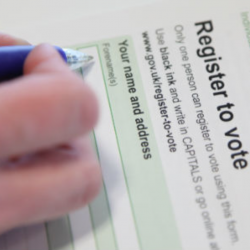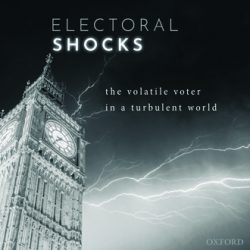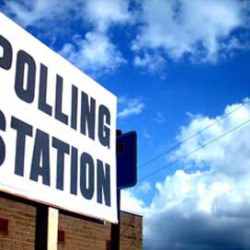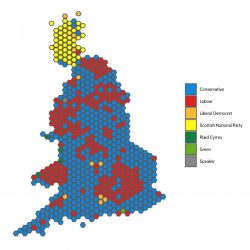News

New Report: Individual Electoral Registration and the British Election Study
In 2014 Individual Electoral Registration (IER) was introduced in England, Scotland and Wales. IER requires voters to register individually and provide individual identifying information, such as their date of birth and national insurance number. It replaced the previous system of ‘Household Electoral Registration’ (HER), whereby…

“Electoral Shocks” Now Free to Download
‘Electoral Shocks: The Volatile Voter in a Turbulent World‘ is now available free of charge to everyone under an Open Access agreement with Oxford University Press, funded by the University of Manchester. You can download the full text as a PDF here. We hope this…
Weighting the BES Post-Election Random Probability Survey
The 2019 BES Post-Election Random Probability Survey uses gold-standard random probability methods. Still, it is important to ensure that it is representative of the target population. In this case, we take as our target all adults aged 18 or over who live in Great Britain…
The BES Post-Election Random Probability Survey V.1.0.0: Release note
This note accompanies the release of the 2019 BES Post-Election Random Probability Survey (version 1.0.0). Dataset and documentation The dataset and additional documentation are available to download here. Citation Fieldhouse, E., J. Green., G. Evans., J. Mellon, C. Prosser, R. de Geus, and J. Bailey…

Age and voting behaviour at the 2019 General Election
Recent British elections have seen much discussion about the relationship between age and voting behaviour. British politics seems increasingly polarised along age lines, with younger voters being more likely to support the Labour party and older voters more likely to support the Conservatives. This pattern…

Volatility, realignment and electoral shocks: Brexit and the UK General Election of...
The 2019 UK General Election held on 12th December has been described as a Brexit Election. Boris Johnson called the election with a pledge to “get Brexit done” only months after being elected Conservative leader on the platform of promising to leave the EU on…
Data Release: Wave 20 of the British Election Study Internet Panel, 2014-2023
The British Election Study is pleased to announce the release of wave 20 of our Internet Panel survey. Wave 20 constitutes the first wave of the panel to occur after the outbreak of the coronavirus crisis. 31,468 respondents took wave 20 of the British Election…
How Coronavirus Attitudes Fit into Britain’s Ideological Landscape
By Jon Mellon, Jack Bailey and Chris Prosser Early in the year, a buoyant Boris Johnson said that 2020 would be “a fantastic year for Britain”. Instead, in the months that followed, the UK faced its great public health crisis in a century. Over 44,000…
The Government is losing support over its handling of Coronavirus, especially among...
By Jane Green, Geoff Evans, and Dan Snow Competence reputations, once lost, are extremely hard to recover. Furthermore, competence signals can, when large and salient, cut through existing political loyalties and cause voters to switch their support. The voters who are most likely to punish…
Data Update, 7 July 2020
Today we have released an updated version of waves 1-19 of the British Election Study Internet Panel, 2014-2023. This is a routine update intended to fix minor errors and inconsistencies that we and our users have found since the initial release. The changes are as…
